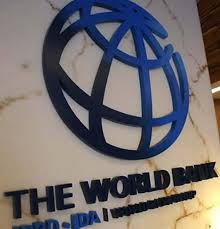In response to recent challenges posed by undersea cable cuts affecting connectivity across West Africa, Nigeria has called for a coordinated and multilateral approach to safeguard shared telecommunications infrastructure in the region.
Voice of Nigeria (VON) reports that this plea was made by the Executive Vice Chairman of the Nigerian Communications Commission (NCC), Dr. Aminu Maida, during the 21st West Africa Telecommunications Regulatory Assembly (WATRA) Annual General Meeting (AGM) held in Freetown, Sierra Leone.
Dr. Maida emphasized the critical need for a mechanism to protect the region from damage to submarine infrastructure, citing recent nationwide outages experienced in multiple networks across 12 African countries. These outages, caused by submarine cable cuts, highlighted the vulnerability of West Africa’s telecommunications networks and the urgent necessity for collaborative efforts to ensure uninterrupted connectivity.
Addressing the assembly, Dr. Maida stressed that securing telecom infrastructure is vital for attracting Foreign Direct Investment (FDI) and enhancing investor confidence in the sub-region. He underscored the importance of telecommunications networks’ reliability and resilience, noting that these factors significantly influence investors’ assessments of regional opportunities.
The NCC Boss proposed establishing a framework for joint monitoring, risk mitigation, and emergency response procedures for submarine cables passing through the sub-region. He recommended expanding the mandate of the WATRA Working Group on Infrastructure to develop a comprehensive strategy for safeguarding telecommunications networks and associated infrastructure. This proactive approach aims to bolster resilience and insulate the sub-region from future disruptions.
Furthermore, Dr. Maida advised strengthening sub-regional infrastructure resilience, promoting connectivity diversification, conducting regular capacity assessments, and designating telecommunications infrastructure as critical national infrastructure in member countries.
The 21st WATRA AGM deliberated on various issues, including accessible and affordable telecommunication services, consumer protection, quality of service, roaming, and conflict resolution. Nigeria’s Mr. Yusuf Aliyu Aboki was reelected as Executive Secretary for a second term, demonstrating confidence in his leadership abilities.
Dr. Maida commended Mr. Aboki for his visionary leadership and successful delivery of WATRA’s 2022 — 2025 Strategic Plan. He urged the Executive Secretary to build on past achievements through stronger partnerships and deeper collaboration, advancing the interests of the sub-regional body.
The West Africa Telecommunications Regulators Assembly, established in 2002, serves as a platform for national telecommunication regulatory authorities in 16 member states to promote regulations stimulating investment in telecommunication infrastructure for delivering affordable, accessible, faster, and secure communication services to citizens.





















Discussion about this post